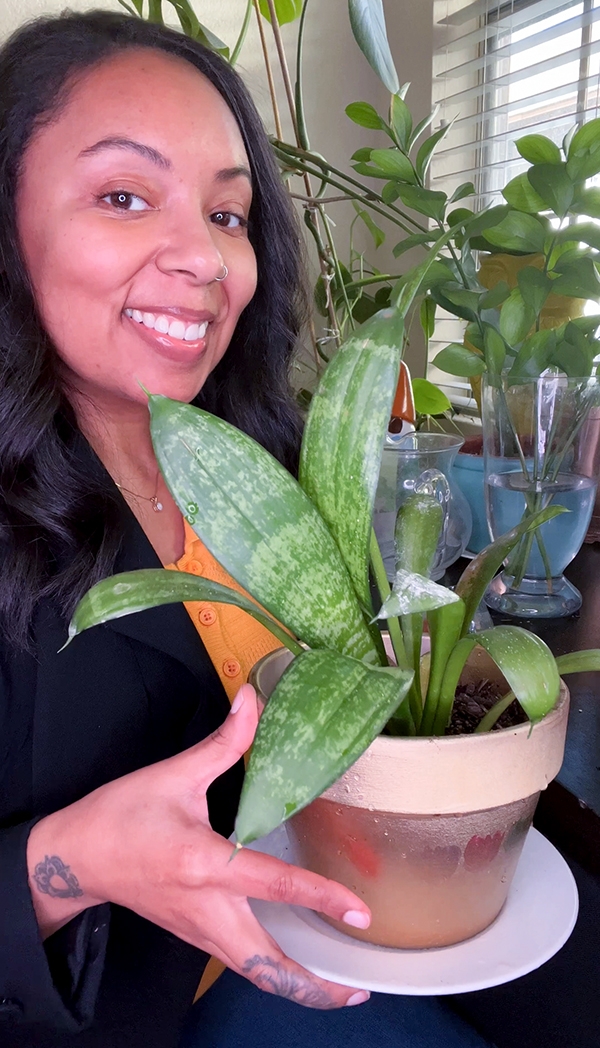The Healing Power Of Gardening
By Guest Blogger Cazoshay Marie
Gardening can provide many benefits for individuals with brain injuries. I acquired my brain injury as the result of being struck by a car traveling 48mph while crossing the street in 2017. Over the course of my path to recovery (which I am still on), I have found ways to make gardening more accessible with my limitations and discovered the many benefits that it can have for brain injury survivors.
“Gardening requires you to use your brain and memory in a variety of ways to be successful. It exercises the use of problem-solving skills and attention to detail, as well as provides cognitive stimulation.”
The Healing Power Of Gardening
By Guest Blogger Cazoshay Marie
Gardening can provide many benefits for individuals with brain injuries. I acquired my brain injury as the result of being struck by a car traveling 48mph while crossing the street in 2017. Over the course of my path to recovery (which I am still on), I have found ways to make gardening more accessible with my limitations and discovered the many benefits that it can have for brain injury survivors.
“Gardening requires you to use your brain and memory in a variety of ways to be successful. It exercises the use of problem-solving skills and attention to detail, as well as provides cognitive stimulation.”
The first benefit is cognitive stimulation. Gardening requires you to use your brain and memory in a variety of ways to be successful. It exercises the use of problem-solving skills and attention to detail, as well as provides cognitive stimulation. While some gardeners (myself included at times) choose to have a “just go for it” approach when it comes to planting, there’s a better-than-good chance that you will get better results if you choose to plan and organize your garden.
Gardening is also a great, low-impact way for brain injury survivors to get physical activity. It involves various physical movements such as digging, planting, and watering, which can help with motor skills, coordination, and strength-building. As a brain injury survivor, I both understand and experience how physical activity can be challenging at times, and in certain contexts, gardening is no exception. However, there are ways to make it more accessible for brain injury survivors such as container gardening or using dirt and layering practices to bring the planting level up higher. This way, you can avoid having to bend down and further aggravate your symptoms, even if you just have a few pots of herbs in your house.
Gardening can also provide emotional benefits. Spending time outdoors in nature while nurturing plants can promote relaxation, reduce stress, and enhance your mood. As brain injury survivors, there are times when we may feel frustrated by not being able to do the things we used to do, or the things that we would like to do. Gardening can give us a sense of accomplishment by seeing our planting efforts come to fruition from start to finish. Even if our plants end up dying (as they sometimes do), it’s a learning experience! We are still able to participate in the activity and accomplish the goal of just trying our hand at planting something. That’s a win on its own!
Another plus is that gardening can be a social activity, one that allows survivors to connect with other individuals who share a similar interest. There are gardening clubs, community gardens, and online gardening groups that can foster social connections and provide a sense of belonging for survivors. It’s also a great activity to do with your family or caregiver. Given my disabilities, even with the modifications that I make to be able to garden, I still need help at times. This is a fun, low-stress activity that I can do with my son where we can bond doing something fun together.
It’s important to note that the benefits of gardening for individuals with brain injury may vary depending on the severity and specific needs of each person. It’s advisable to consult with healthcare professionals who can give guidance on the level of activity that is appropriate for your individual capabilities and goals. If you’re looking for a rewarding activity that you can make accessible as a brain injury survivor, give gardening a try!
ABOUT BRAIN INJURY ASSOCIATION OF ARIZONA
The Brain Injury Association of Arizona (BIAAZ) is the only statewide nonprofit organization dedicated to improving the lives of adults and children with all types of brain injuries through prevention, advocacy, awareness and education. BIAAZ also houses the Arizona Brain Health Resource Center, a collection of educational information and neuro-specific resources for brain injury survivors, caregivers, family members and professionals.
What began in 1983 as a grassroots effort has grown into a strong statewide presence, providing valuable life-long resources and community support for individuals with all types of brain trauma at no charge.






